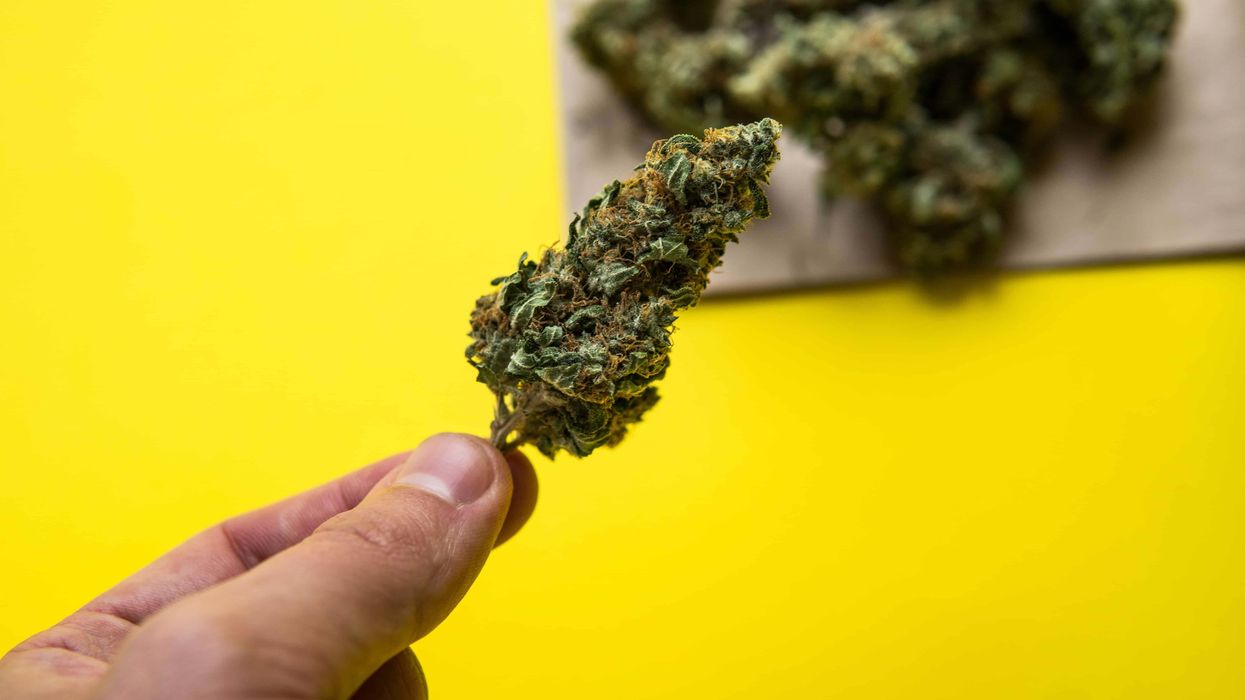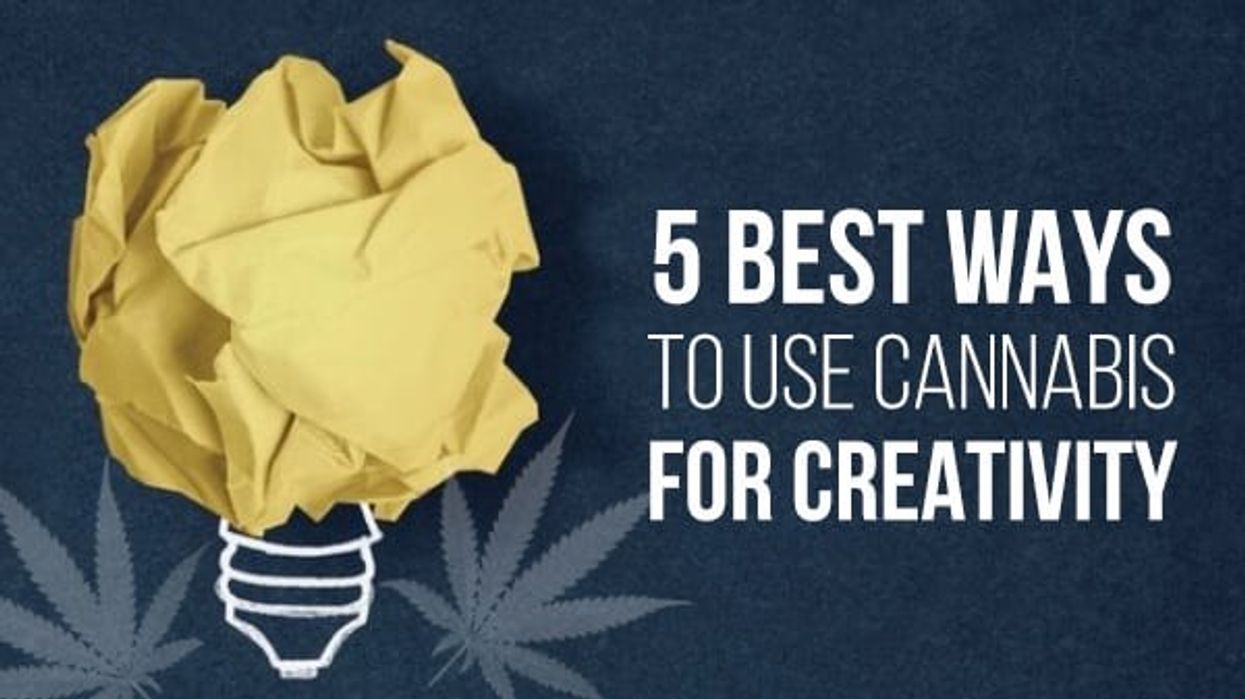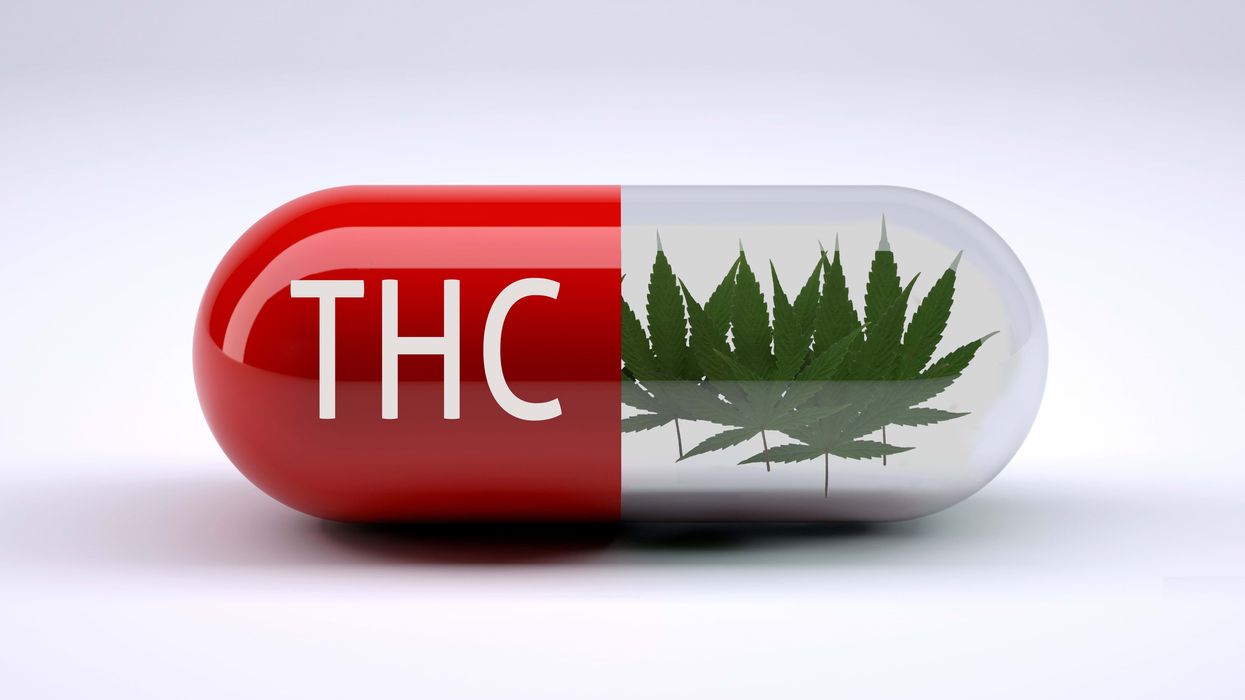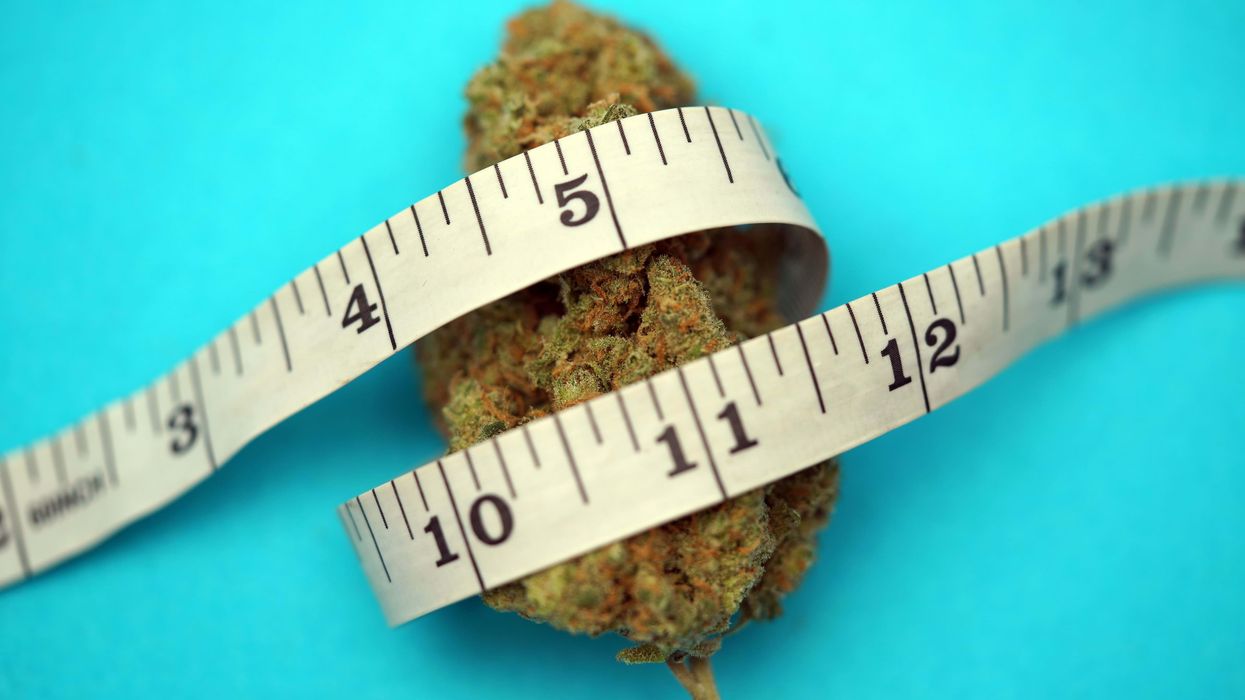No matter how many raw cannabis flowers you set your intention on chowing down, you’ll never get high. Why? Because unprocessed buds contain almost no THC.
Instead, the fresh flowers contain high levels of the cannabinoid THCA, or tetrahydrocannabinolic acid.
Although it offers no psychoactive effects of its own, potent preparations of THCA — such as distillate — immediately convert to THC when exposed to the heat of bong bowls and vaporizers.
Psychoactivity aside, cannabis researchers are also discovering the value of THCA in its own right, which can be administered through cannabis juicing, tincture, capsules, distillate, and other methods.
Early research demonstrates how the molecule interfaces with the endocannabinoid system to combat nausea, protect neurons and boost our own supply of internal cannabinoids (yes, the body makes its own cannabinoids).
Here at The Bluntness, we’re fascinated with the chemical complexity of cannabis. Join us as we explore the properties of one of over 100 plant cannabinoids: THCA.
When Was THCA Discovered?
Although cannabis scientists first isolated THC in 1963, it took them a little longer to discover THCA. The cannabinoid acid slowly converts to THC during storage, and their early interest lay in hash and charas imported from Europe and further afield.
However, in 1965, Professor Friefhelm Korte from the University of Bonn became the first researcher to identify THCA as a major constituent within hashish.
More recently, researchers have discovered that THCA represents around 90% of the total THC content of cannabis. Around 70% of the cannabinoid acid converts to THC when heated appropriately.
What Are The Effects of THCA?
THCA stands among many other non-psychedelic cannabinoids. When consumed orally or sublingually, the cannabinoid produces only subtle effects by interacting with several receptor sites in the body.
When heated at the right temperature for the correct amount of time — a process known as decarboxylation — THCA converts to THC.
For this reason, THCA serves as a multi-purpose molecule. Some users elect to harness the health benefits of the original molecule, whereas others use high concentrations of THCA in the form of distillate for its mind-blowing effects.
For those in the former group, early research has shown THCA to possess a long list of potential benefits:
- Inflammation: Inflammation underpins many states of disease. THCA appears to mediate this physiological process through GPR55 receptor binding. Researchers from the Institute of Plant Science, Israel, found THCA to reduce inflammation in colon cells, suggesting that the cannabinoid could play a therapeutic role in irritable bowel disease.
- Nausea: THCA reduces nausea through its action at the CB1 receptor. Researchers suggest that the cannabinoid acid could play a more effective role in combating nausea than THC, thanks to its increased potency for this purpose and lack of psychoactive side effects.
- Cancer: Researchers are developing drugs based on THCA that show anti-tumour capabilities. THCA itself has also demonstrated the ability to reduce cell viability of certain forms of cancer in a Petri dish.
- Neuroprotection: Early cell models show that THCA may offer neuroprotection in neurodegenerative conditions such as Parkinson's disease and Huntington’s disease. The molecule appears to increase neuron cell survival and prevent nervous system cells from changing shape.
- Weight Loss: THCA may help to fuel weight loss and combat obesity. Research published within the journal Biochemical Pharmacology showed the cannabinoid acid to reduce fat stores and prevent metabolic disease associated with obesity in mice.
Why Is THCA Distillate So Potent?
THCA distillate offers one of the most intense highs available. Why? Because it’s one chemical reaction away from hitting a bowl or blunt loaded with pure THC.
Every time you inhale the vapours from cannabis flowers, concentrates, or extracts, you’re also breathing in terpenes, chlorophyll, waxes, and other components of cannabis.
THCA distillate removes all of these additional phytochemicals and serves up a pure serving of the THC precursor.
When you apply a flame to a bowl of this material, you’ll instantly convert it into THC and inhale quantities rarely found elsewhere.
How Is THCA Distillate Made?
Manufactures craft THCA distillate using state-of-the-art refinement techniques. The process usually looks something like this:
- Obtain extract: First, they freeze and pulverize the raw material to create a crude extract.
- Further separation: From here, technicians mix the extract with activated carbon to remove even more excess plant material from the equation, followed by filtration and rotary evaporation.
- Chromatography: This step helps to remove finer particles and chemicals that have no place in the end product. For example, chromatography helps to separate THCA from other cannabinoids and terpenes.
- Purification and filtration: Finally, the chemist then returns the preparation to a rotary evaporator and exposes it to methanol. After another filtration and another round in an evaporator, technicians usually achieve THCA distillate with a purity of up to 99.997%.
How Does THCA Work In The Body?
Oral and sublingual administration allows users to consume THCA while avoiding decarboxylation.
This grants THCA entry into the body without converting into THC. Researchers have elucidated some of the mechanisms by which the cannabinoid acid works in the body.
- CB1 receptors: Upon activation, this cannabinoid receptor triggers the cannabis high. THCA binds to this site, but with a much lower affinity than THC. It doesn’t produce enough activity to exert a high, but it does appear to impart therapeutic action through this mechanism.
- CB2 receptors: Non-psychoactive cannabinoids such as beta-caryophyllene produce anti-inflammatory effects through CB2 receptors. THCA does bind to this receptor, but again, only with low affinity.
- GPR55 receptors: These receptors make up part of the extended endocannabinoid system. Although their role in the central nervous system remains murky, they are known to play an important role in the therapeutic action of cannabinoids.
- TRP channels: Transient receptor potential (TRP) ion channels mediate sensory input such as vision, taste, and touch. THCA directly interacts with various TRP channels, either stimulating or desensitizing them.
- Enzyme inhibition: Endocannabinoid system enzymes work to break down our own supply of cannabinoids. By stopping these enzymes in their tracks, THCA may temporarily elevate levels of endocannabinoids such as anandamide (the “bliss molecule”) and 2-AG.
Does THCA Make Raw Cannabis A Potential Superfood?
Raw cannabis may serve as a superfood. As more research uncovers the beneficial molecules within, many budding cannabis chefs are using raw buds and leaves in culinary preparations.
As well as containing high volumes of vitamins, healthy fatty acids, minerals, and enzymes, raw cannabis possesses a huge quantity of THCA.
For this reason, cannabis juicing is also a worthy consideration for anyone who has enough plant material.
While THCA is swiftly becoming the go-to cannabinoid for intense recreational experiences, its emergence within culinary circles and the medicinal field are fuelling its rise as one of the most versatile cannabis phytochemicals available.
Are you still missing out on The Bluntness newsletter? Sign Up today to stay in the loop.















 Recognizing the Signs of Antisocial Behaviors - The Bluntness
Photo by
Recognizing the Signs of Antisocial Behaviors - The Bluntness
Photo by  Weed Makes Me Antisocial: What To Do - The Bluntness
Photo by
Weed Makes Me Antisocial: What To Do - The Bluntness
Photo by 
 The Truth About THC Candle: Cannabis Candles & How to Make Your Own - The Bluntness
Photo by
The Truth About THC Candle: Cannabis Candles & How to Make Your Own - The Bluntness
Photo by 
 What will you do with that cannabis kief collection? - Make Coffee! The Bluntness
What will you do with that cannabis kief collection? - Make Coffee! The Bluntness DIY: How to Make Kief Coffee - The Bluntness
Photo by
DIY: How to Make Kief Coffee - The Bluntness
Photo by